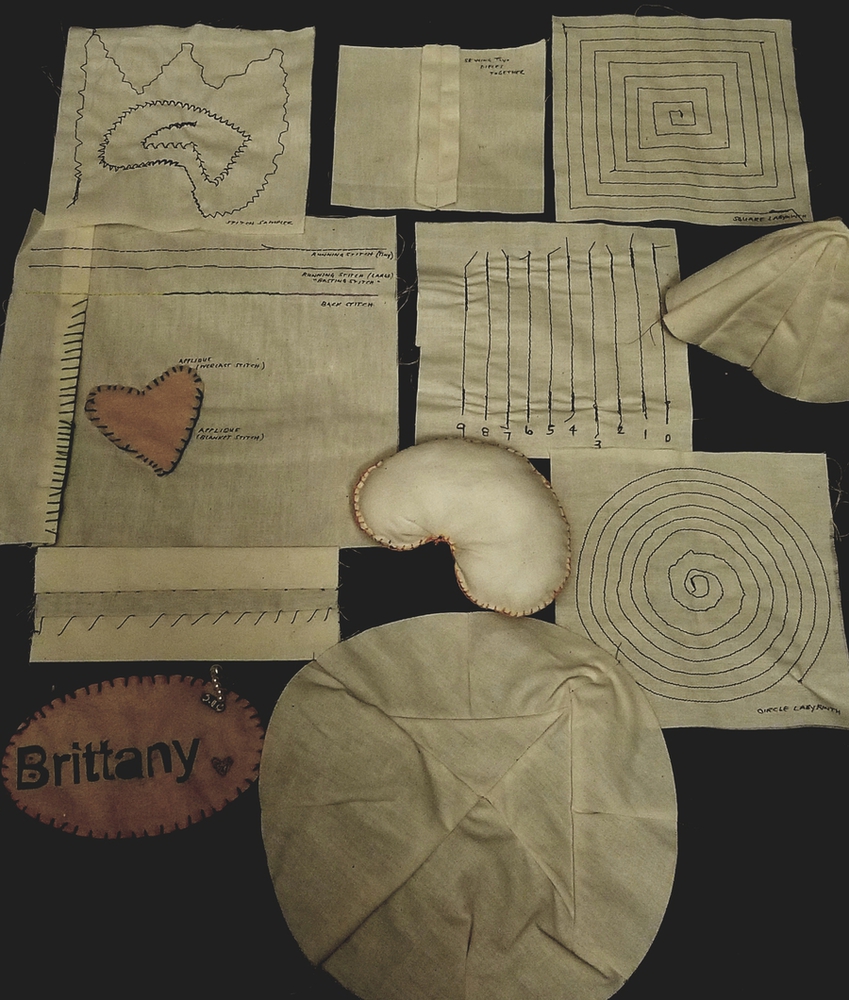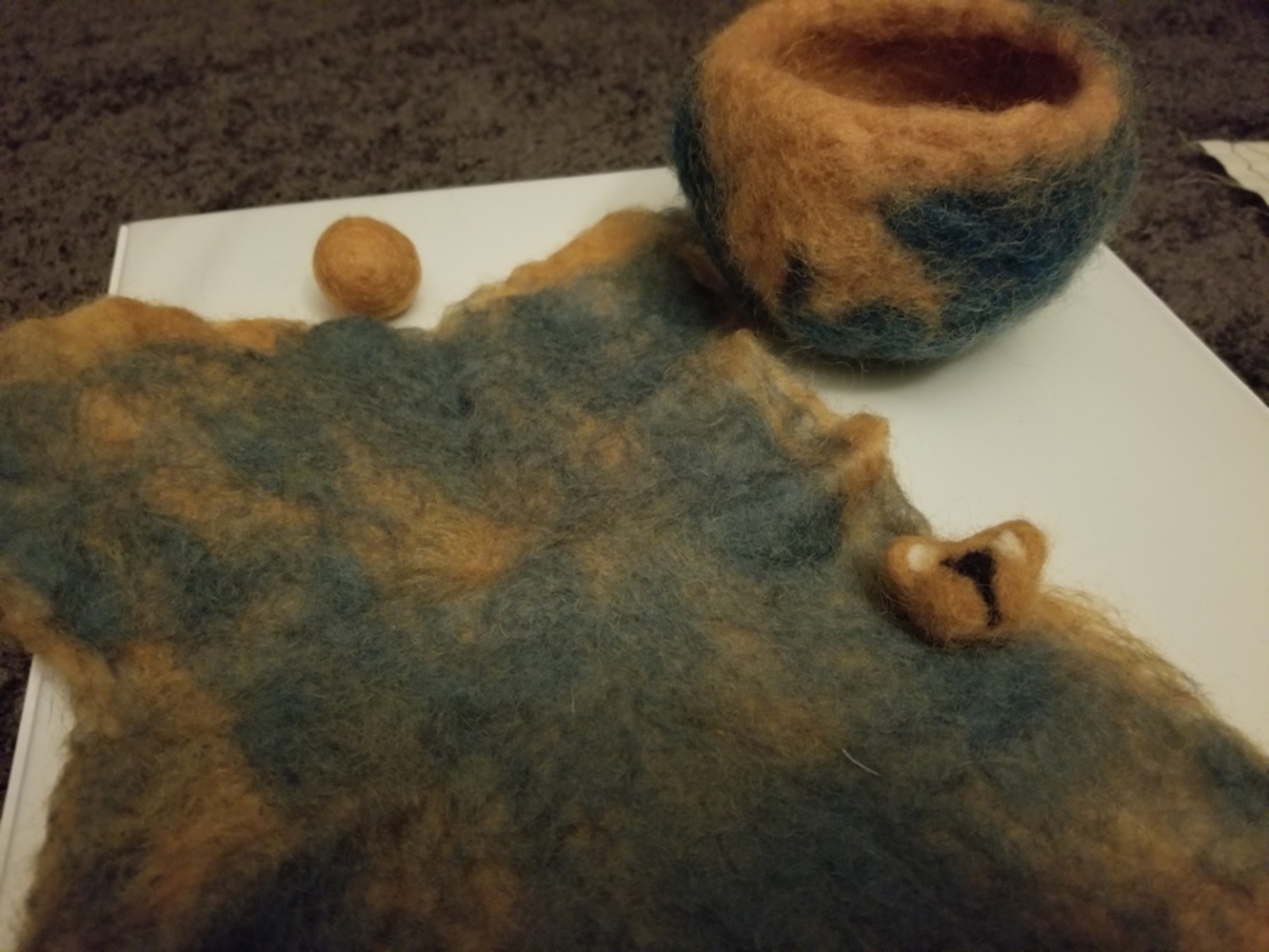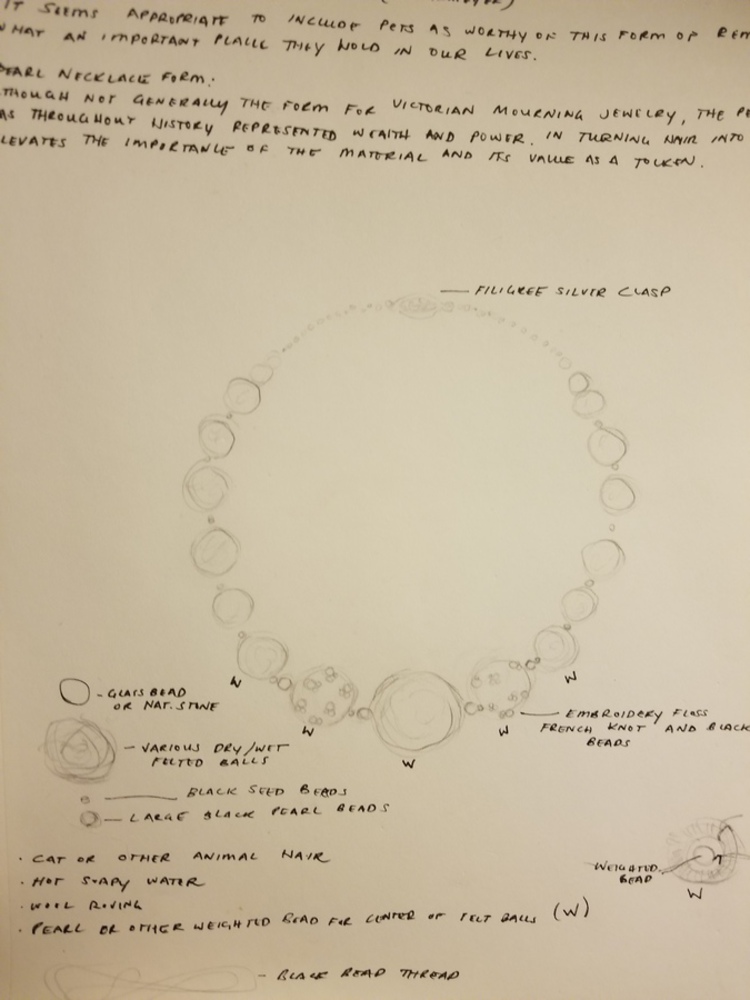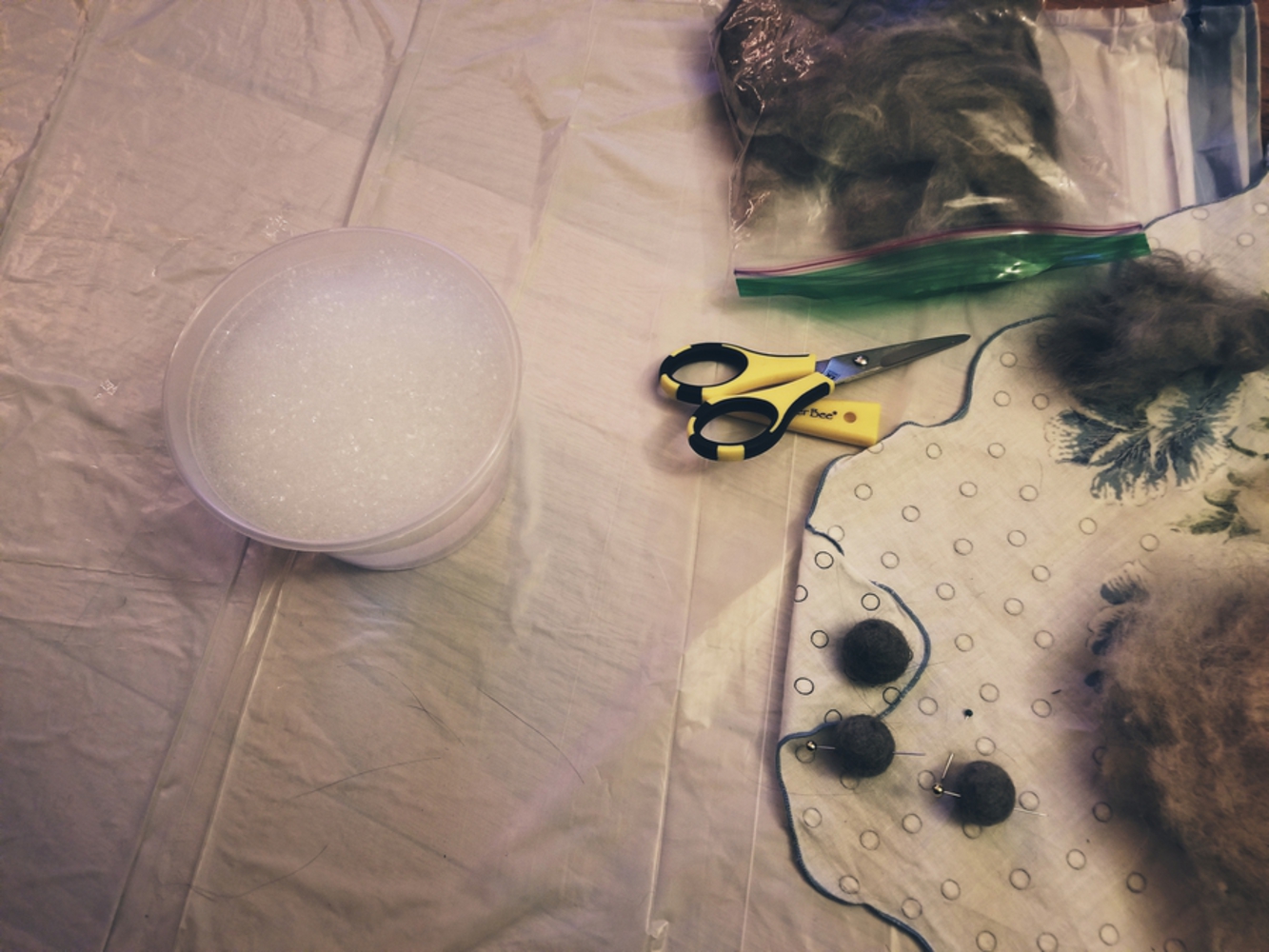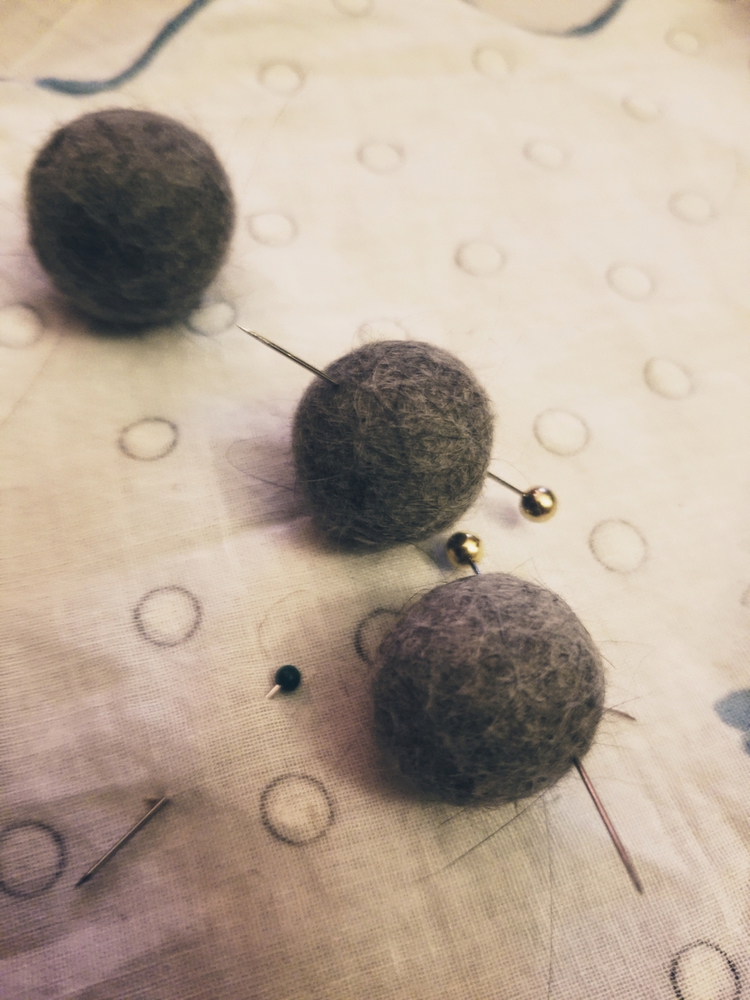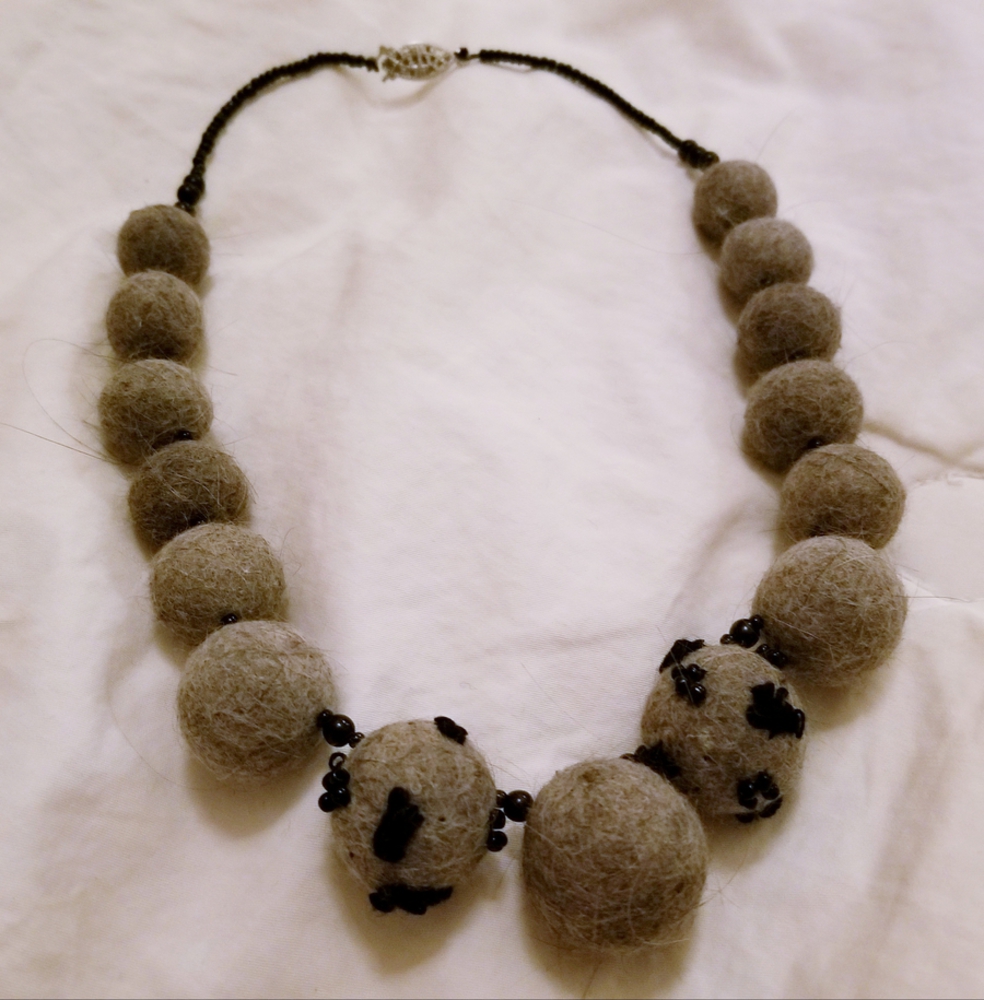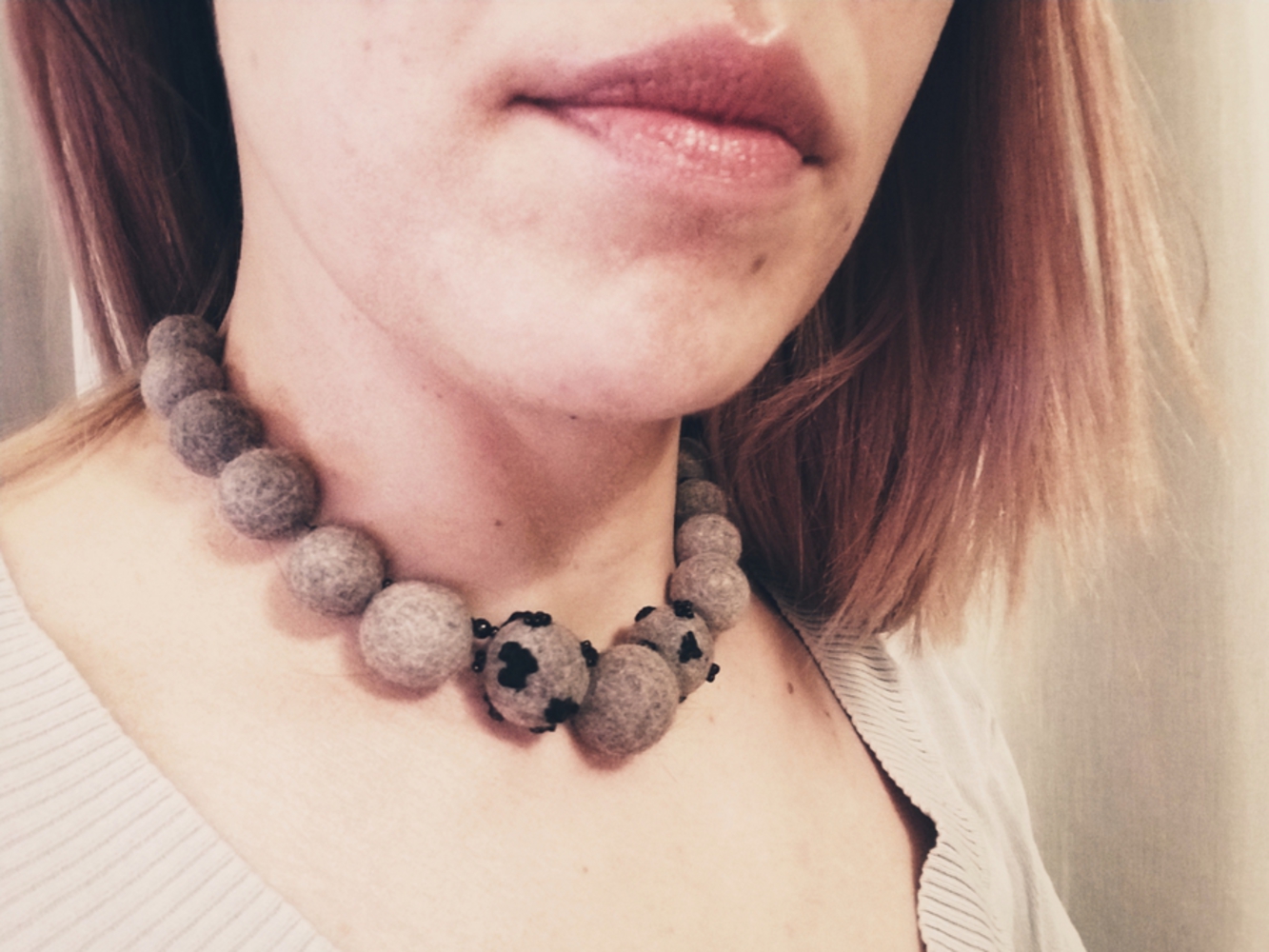Proposal
Mourning necklace for a lost pet
Victorian's explored many ways of remembrance for those lost to them. Queen Victoria mourned the loss of her husband for three years. This time frame for mourning was established as a common practice in society, particularly for women. By the second year of mourning, jewelry could once again be worn and many women chose to wear jewelry crafted from the hair of their deceased loved ones.
"Often misunderstood as an artifact of mourning, hairwork was exchanged as a living, sentimental token of love and friendship [...] hair has specific cultural meaning as a love token." (Harmeyer 2012)
While historically, hairwork was used to memorialize lost humans, it seemed appropriate to include pets as worthy of this form of remembrance, given what an important place they hold in so many of our lives. It was my goal to use the wet felting technique, which we learned in class, to create a hairwork necklace from my cat Fi's hair. Thankfully Fi is still living, but the same token of remembrance could be created from the hair of deceased pets in the future.
--
Harmeyer, Rachel. “Objects of Immortality: Hairwork and Mourning in Victorian Visual Culture.” Journal of Digital Information, 2012, journals.tdl.org/add/index.php/add/article/view/7034/6302.
Process
Initially, research was conducted on the history of mourning jewelry and the historical significance of pearls. Once I had an idea of the form the necklace would take, I was able to proceed with collecting and crafting the necessary materials. In addition to the wet felting technique explored in class, this project required me to learn the very basics of necklace construction, embroidery (French Knot Stitch), and beading. A sketch was made to help guide me in making the correct size felt balls in the proper numbers.
